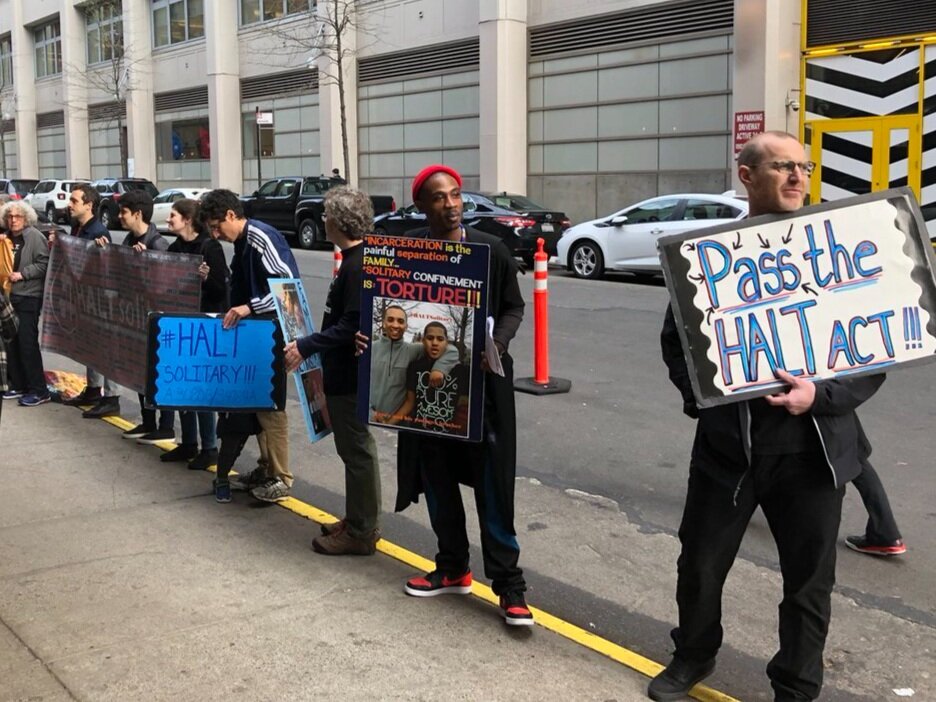Progressive NY lawmakers prioritize parole reform, legal weed and end to solitary in 'Justice Roadmap'
/Justice reform advocates push state lawmakers to pass the HALT Solitary Act in 2019. Photo courtesy of #HALTSolitary Campaign
By David Brand
A group of progressive state lawmakers have pledged to pursue a package of criminal justice reform bills in the upcoming legislative session, with a particular focus on reducing the prison population, legalizing marijuana and limiting the use of solitary confinement.
Eighteen senators and assemblymembers — including Queens Sens. John Liu and Jessica Ramos and Assemblymembers Khaleel Anderson and Catalina Cruz — signed on to the Justice Roadmap 2021 platform put forth by a coalition of reform groups during coordinated rallies Tuesday.
The package is designed “to protect communities of color and immigrant New Yorkers against criminalization that often leads to imprisonment and deportation,” the Justice Roadmap coalition wrote in a statement announcing the agenda.
“New York State has failed to provide our communities with affordable housing, quality healthcare, and robust educational and economic opportunities,” said Center for Community Alternatives organizer Marvin Mayfield. “With the Justice Roadmap, we are saying that this ends today.”
The package of bills includes the Human Alternatives to Long-Term (HALT) Solitary Confinement Act to dramatically curtail the use of solitary confinement in New York state; the Marijuana Regulation and Taxation Act, which legalizes weed for adults 21 and over and directs tax revenue to communities of color most impacted by the War on Drugs; and the Fair and Timely Parole Act, which would grant parole to eligible people in prison unless they pose a clear risk of violating the law.
Last session, Senate and Assembly Democrats hesitated to pursue justice reform legislation in an election year after the newly enacted bail and discovery reform measures encountered furious backlash among Republicans, moderates, law enforcement and tabloid media. State lawmakers amended the bail law during secret budget negotiations in April.
It wasn’t until demonstrations erupted across the state in the wake of the police killing of George Floyd in Minnesota that lawmakers again took up meaningful reforms — chief among them the repeal of 50-a, a section of state law that shielded police personnel and disciplinary records from public view. Lawmakers returned to Albany after the session had ended to pass the new measures.
Justice reform advocates are optimistic that Democratic supermajorities in the Senate and Assembly will once again center justice reform.
But their efforts may be complicated by a recent spike in shootings and violent crime in New York City, developments that have fanned opposition to efforts to reduce the jail and prison population via community-based alternatives to incarceration.




